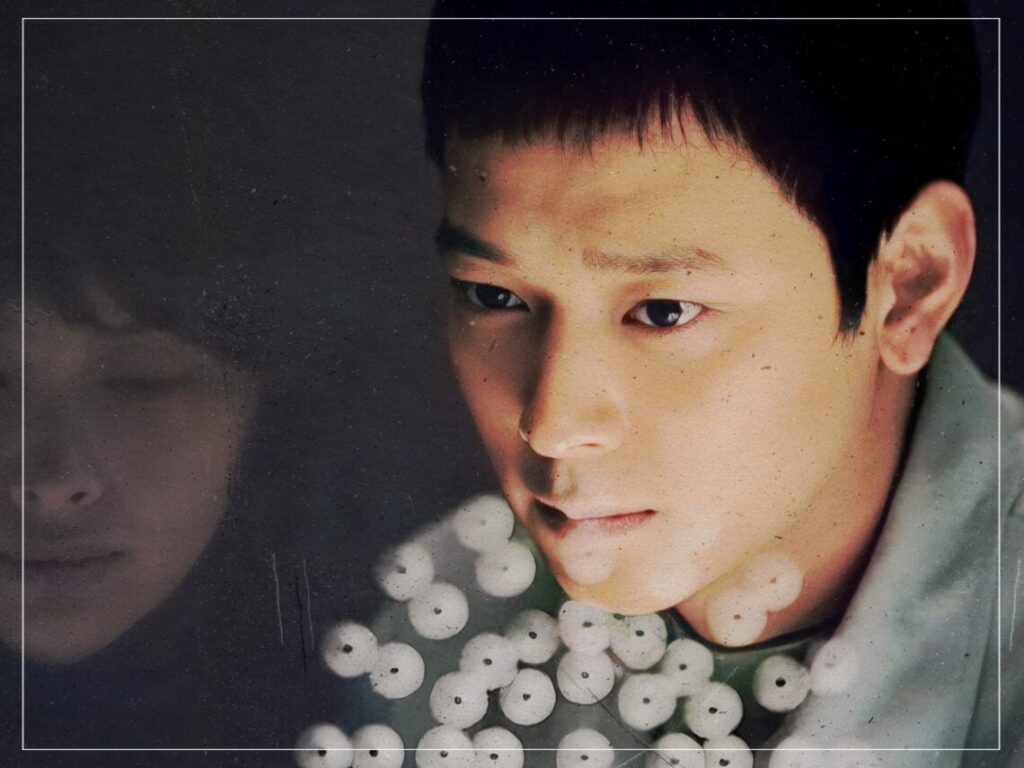‘Maundy Thursday’: Korean cinema’s death row drama
 Posted On
Posted On
(Credits: Far Out / Prime Entertainment)
A romantic drama based on a novel that draws its inspiration from the religious occasion of the same name, it’s an interesting concoction of parts that led to director Song Hae-sung’s Maundy Thursday, which ended up becoming one of Korean cinema‘s biggest hits in 2006.
It was certainly a change of pace from a filmmaker who’d previously helmed professional Rikidōzan, the biopic of a professional wrestler and cultural icon, although it does have plenty in common with the marital drama of his debut feature Failan.
Adapted from author Gong Jiyeong’s novel Our Happy Time, Maundy Thursday derives its title from the day in Christianity’s Holy Week that falls between Spy Wednesday and Good Friday. While that might create assumptions that there’s going to be a heavy dose of spirituality contained within (which is accurate), the crux of the narrative is the unlikely love story between Gang Dong-won’s Jung Yun-soo and Lee Na-young’s Moon Yu-jeong.
The latter has tried and failed to commit suicide three times, with Yu-jeong caught up in an endless cycle of despair and personal dissatisfaction born from her fractious relationship with her mother and all-around indifference to the world she lives in, and her disinterest in trying to find her own place within it.
She does have a much closer connection with her aunt, though, which makes her a regular fixture on death row at a local prison where she visits the inmates living on borrowed time. Yun-soo is one of them, having been convicted of murder, but the instantaneous attraction he feels isn’t immediately reciprocated.
Eventually, they bond through trauma, with each of them carrying a dark past responsible for their current personal predicaments. Thanks to the impact they’ve made on each other, their renewed happiness is immediately undercut by the inevitable realisation that they don’t have a chance at being together for very long.
Needless to say, Maundy Thursday is a real tear-jerker. Thanks to the leads’ performances and the organic way their relationship develops throughout the running time, Hae-sung easily has audiences invested in the outcome, no matter which way the dominoes end up falling.
The religious undertones and symbolism admittedly become increasingly heavy-handed as things progress, with many of the themes so overt they border on the blatant. Don’t judge a book by its cover, don’t let a poor first impression ruin a potential connection, making peace and finding forgiveness taking on the utmost importance, the perils of a love story with a finite timeline, and finding true happiness for the first time in a long time in unexpected places are virtually cliches at this point.
Still, that doesn’t mean Maundy Thursday doesn’t do an excellent job of tugging at the heartstrings while rehashing them.
[embedded content]


